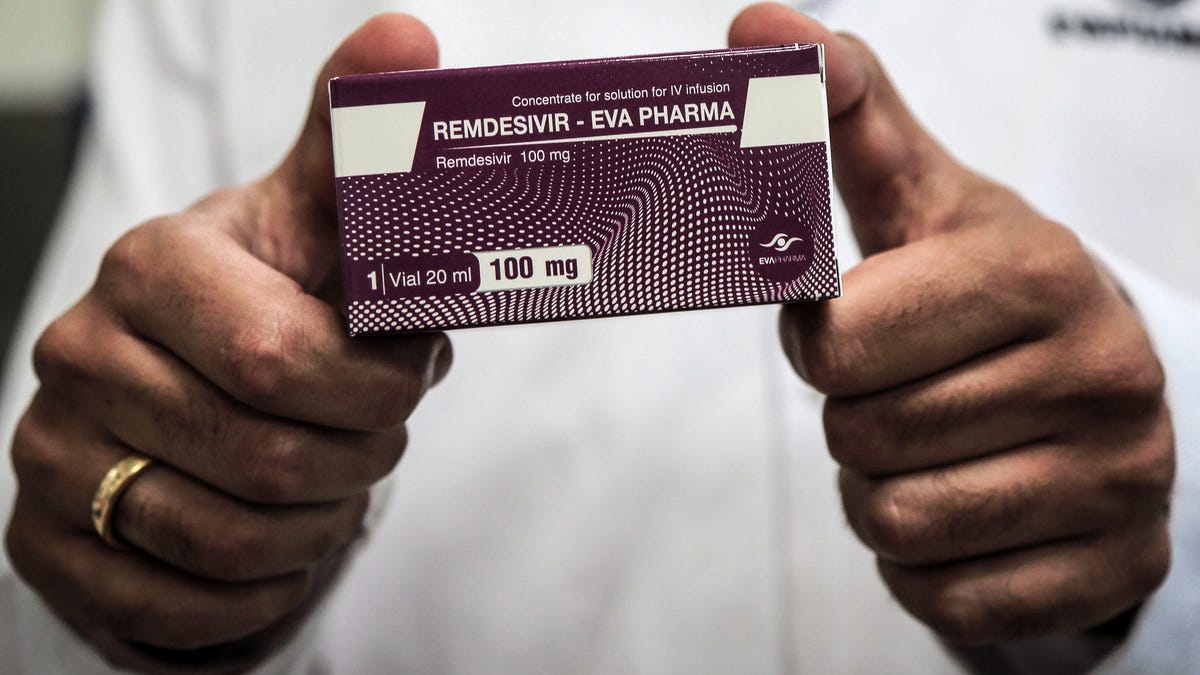Remdesivir gets FDA approval for COVID-19 treatment
The FDA previously issued an emergency authorization to use the antiviral drug for patients "hospitalized with severe disease."

Remdesivir has received FDA approval for treating COVID-19.
The US Food and Drug Administration approved Gilead's antiviral drug Veklury (remdesivir) for treating patients with COVID-19 needing hospitalization, the company said in a Thursday release. In May, the FDA issued an emergency authorization to use the drug for COVID-19 patients "hospitalized with severe disease."
In the release Gilead says, "Veklury works to stop replication of SARS-CoV-2, the virus that causes COVID-19," adding that it's "now the first and only approved COVID-19 treatment in the United States. The drug is now widely available in hospitals across the country, following early investments to rapidly expand manufacturing capacity to increase supply."
When US President Donald Trump tested positive for COVID-19 earlier this month, he received a range of treatments, including remdesivir.
Remdesivir was first developed to treat hepatitis C, and was also used against Ebola. It's not specifically designed to destroy SARS-CoV-2, but rather works by knocking out a piece of machinery in the virus, known as RNA polymerase, which many viruses use to replicate. It's been shown to be effective in human cells and mouse models.
The approval of the antiviral drug is based on three randomized controlled trials, Gilead says. In April, the US National Institute of Allergy and Infectious Diseases said preliminary data from a US-based clinical trial showed remdesivir can help patients more quickly recover from the coronavirus.
The World Health Organization's Solidarity trial, which is the largest trial of drugs repurposed to treat COVID-19, found remdesivir has little to no impact on patient survival. The WHO's interim results from the trial are published on medRxiv, but the results haven't yet been peer reviewed.
In the US, Gilead notes, Veklury is for adults and for kids 12 years and older weighing at least 40 kilograms (about 88 pounds). The company notes the drug "should only be administered in a hospital or in a healthcare setting capable of providing acute care comparable to inpatient hospital care."
Along with the drug's approval, the FDA issued a new temporary emergency authorization to use Veklury to treat hospitalized pediatric patients under 12 years old who weigh at least 3.5 kilograms (about 8 pounds), or hospitalized pediatric patients who weigh between 3.5 kilograms to less than 40 kilograms "with suspected or laboratory confirmed COVID-19 for whom use of an intravenous (IV) agent is clinically appropriate." The FDA hasn't given nonemergency approval for Veklury to be used in patients under 12 years old or who weigh less than 40 kilograms, "and the safety and efficacy of Veklury for this use has not been established," according to Gilead.

